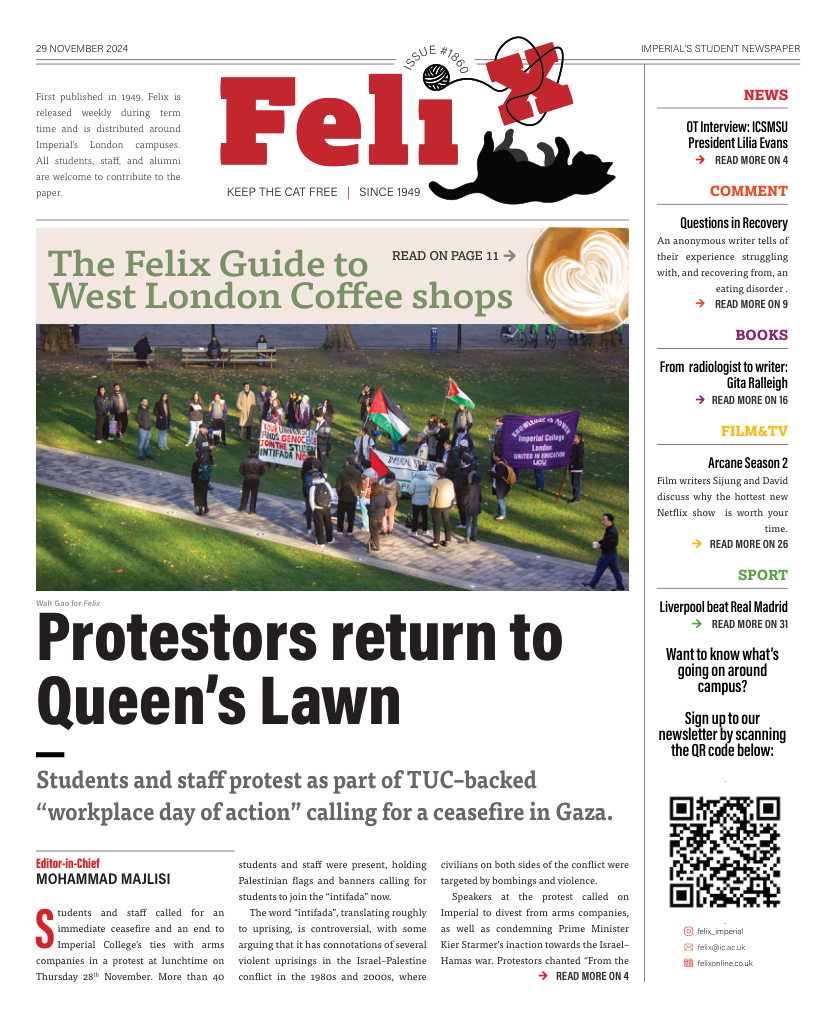Questions in recovery
The experience of combatting an eating disorder—and what I learned from it.
Living with an eating disorder is hard. But recovering from one is even harder. Without a doubt the hardest thing I’ve ever had to do.
After a while, going through the motions of restricting and over-exercising became routine and habit – it became comfortable. And anything straying from “the plan”, however small, was enough to result in a total breakdown. Thus, the first question I faced was how to convince myself to even attempt recovery. Recovery would mean living in a constant state of fear, panic and confusion. Like removing the ground beneath by own feet and falling. How, when I already felt like shit, could I persuade myself to feel worse for months, maybe years, with only the hope of being happy at the end of it? How could I convince myself that I even deserved to recover?
If I’m honest, I’m not sure how I did it, but I did, and now I’m finally on the other side. It was worth it, but the journey was far from smooth.
Despite a referral, intervention from the NHS was nowhere to be seen, and so I was left to figure it out on my own. The first thing I tried was to just “eat normally”. But what was normal? In only a couple of short years, my brain and body had completely forgotten how to eat. I couldn’t eat when hungry and stop when full because I no longer felt hunger – not in the typical sense. My subconscious was screaming for food but my stomach felt “dead”, that’s the only way I remember being able to describe it at the time. I remember asking my sister over and over in tears of frustration: how do “normal people” decide what to eat, when to eat, how to eat? Because I could no longer comprehend that it just happened naturally – I had majorly fucked up my system.
Three meals a day is the standard, right? But then, how often can you stray away from that? How often do people treat themselves? My sister’s answer of “whenever they feel like it” completely baffled me. What do you mean that people could just grab themselves something whenever they wanted it? It sounds stupid now, but at the time, my brain wanted everything and nothing at the same time – making decisions felt impossible. Do normal people ask this many questions?
When this wasn’t working out, I turned to advice from the internet – which wasn’t a good idea either, but it was my only option. There, I found two sides of the “right way to recover”, each overwhelming me with its own set of questions.
One was following a meal plan. Following a strict set of instructions on what to eat sounded almost just as disordered. How would I transition out of it? Furthermore, I’m Asian and any meal plan I could find was based on a Western diet – filled with jacket potatoes and bread rolls. Would following such a plan just isolate me more from my family? Would it bring me any closer to normality?
The other option was an “all in” recovery. In other words, allowing yourself to eat whatever, whenever, and however much you want. This one was scary for obvious reasons. Could I let go of that control? When you starve your body for so long and finally start eating, your body retaliates. It tries to make up for all the nourishment it missed, all at once, until it learns that you’ll feed it consistently again. This comes in the form of extreme hunger. Should I eat more food than “normal people”? Should I eat even if someone isn’t there to see it?
For me, it was this endless stream of questions, and the uncertainty and internal chaos that came alongside them, that made recovery so hard. Why couldn’t they just stop? Why couldn’t I just snap myself out of it? I spent months stuck here. The constant back and forth against myself left me lost and so, so very tired of fighting. Would I ever be okay again?
I know the answer to that now. My thoughts were a tangled mess and truly recovering needed a careful and consistent rewiring of all of them. A rewriting of the neurological pathways tied to the beliefs at the root of the struggle. And that takes time.
If you have been affected by issues raised in this article, help and support can be found online with the BEAT eating disorder charity.








